The 8th and 9th standard students of the Government High School in Inoli of Pavoor village, on Thursday, had to make room for the meeting by having classes outside. The students sat on the ground for many hours listening to the teachers.
Although, Government had sanctioned a school for this village, the building has a shortage of classrooms. Therefore a few classes are being conducted in the Mini Ambedkar Bhavan. During Gram Panchayat meetings 8th and 9th standard classes are either dismissed or conducted on the open ground.
“As a new office is being constructed near Gram Panchayat, there is no proper room to conduct the meeting. Inevitably we had to hold the meeting here”, says Abdul Khader, President of the Inoli Gram Panchayat.
He has also promised to arrange for proper facilities for the students in the days to come.
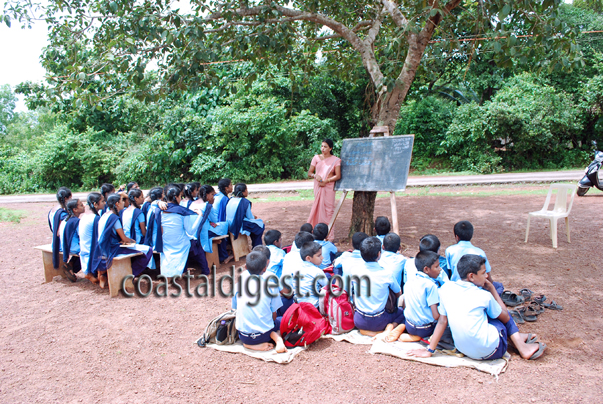
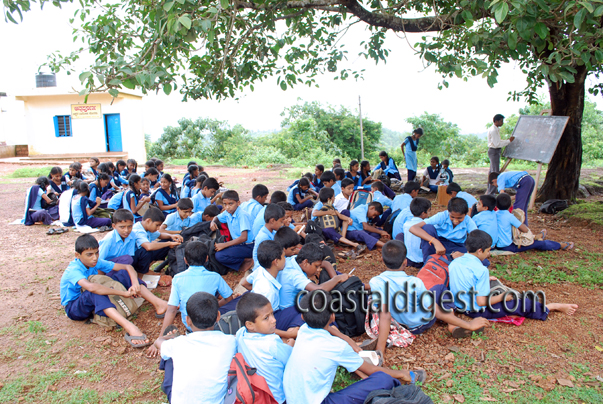
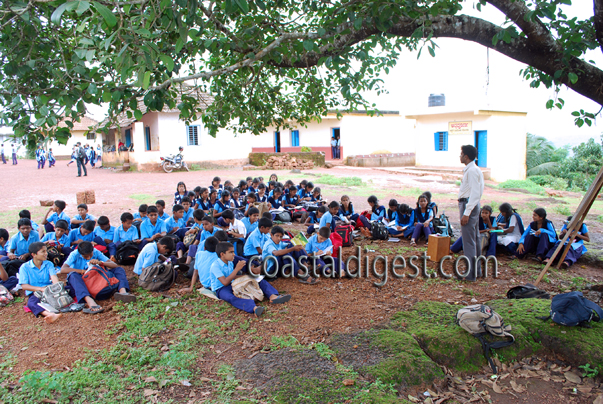
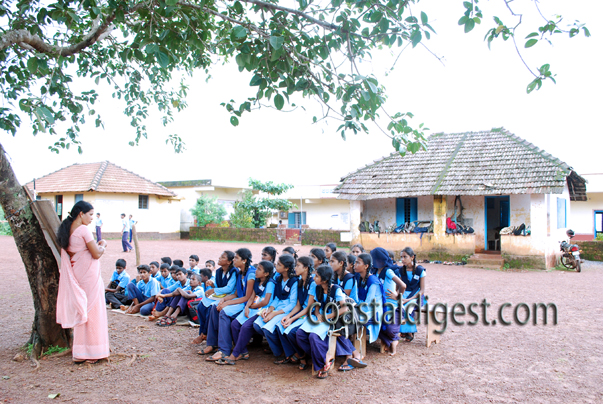
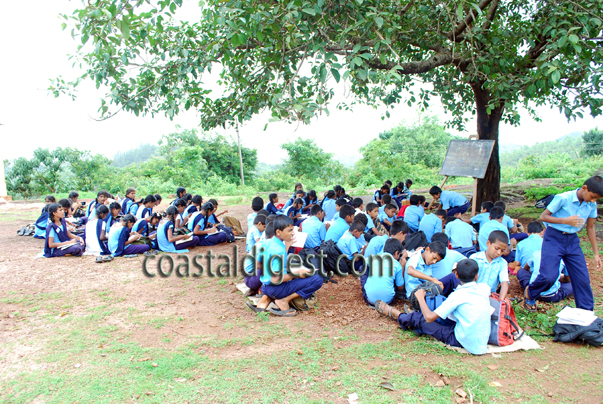
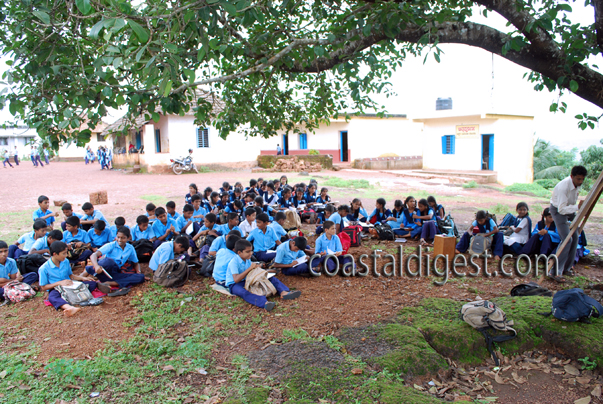







Comments
Add new comment